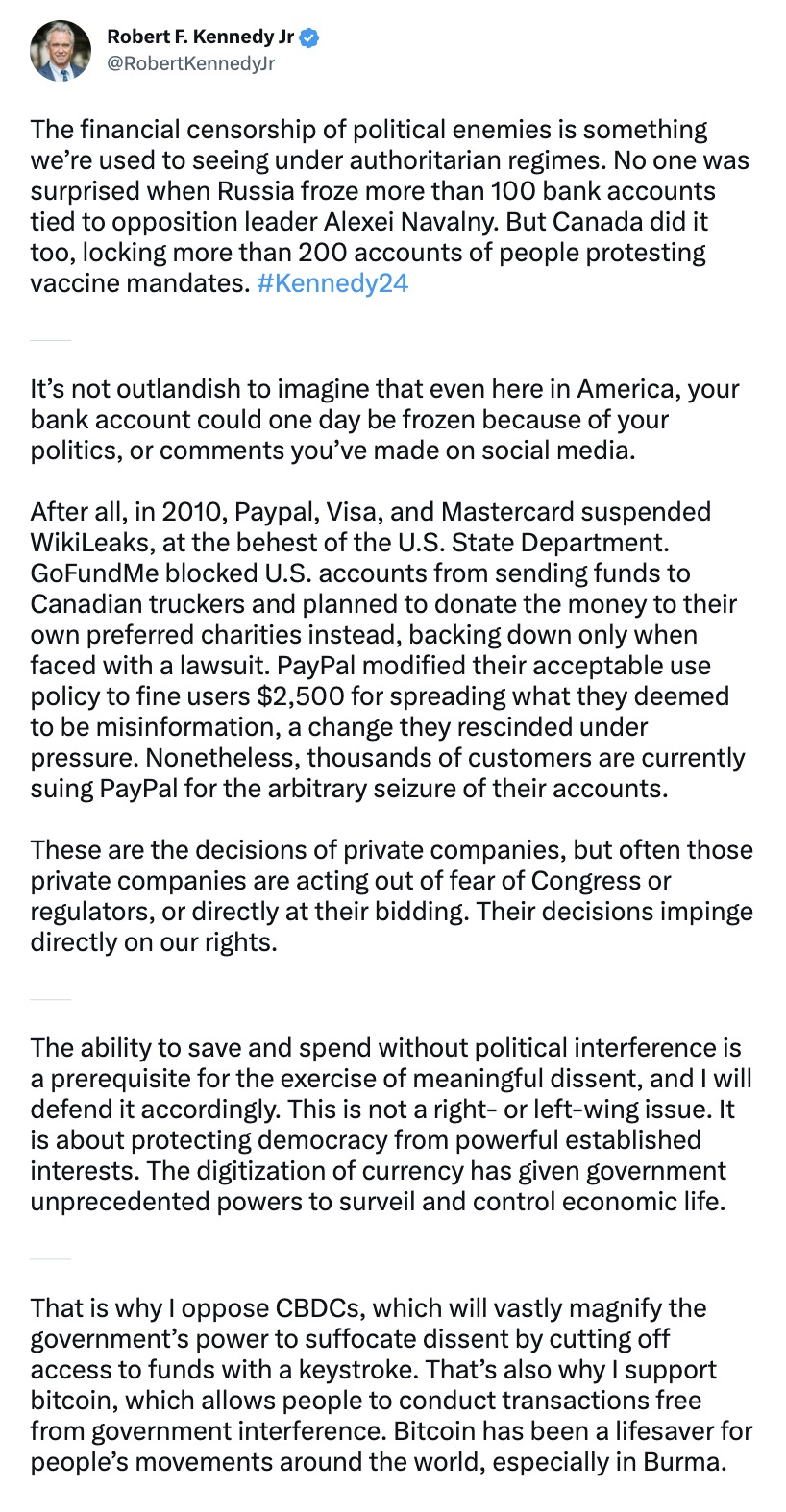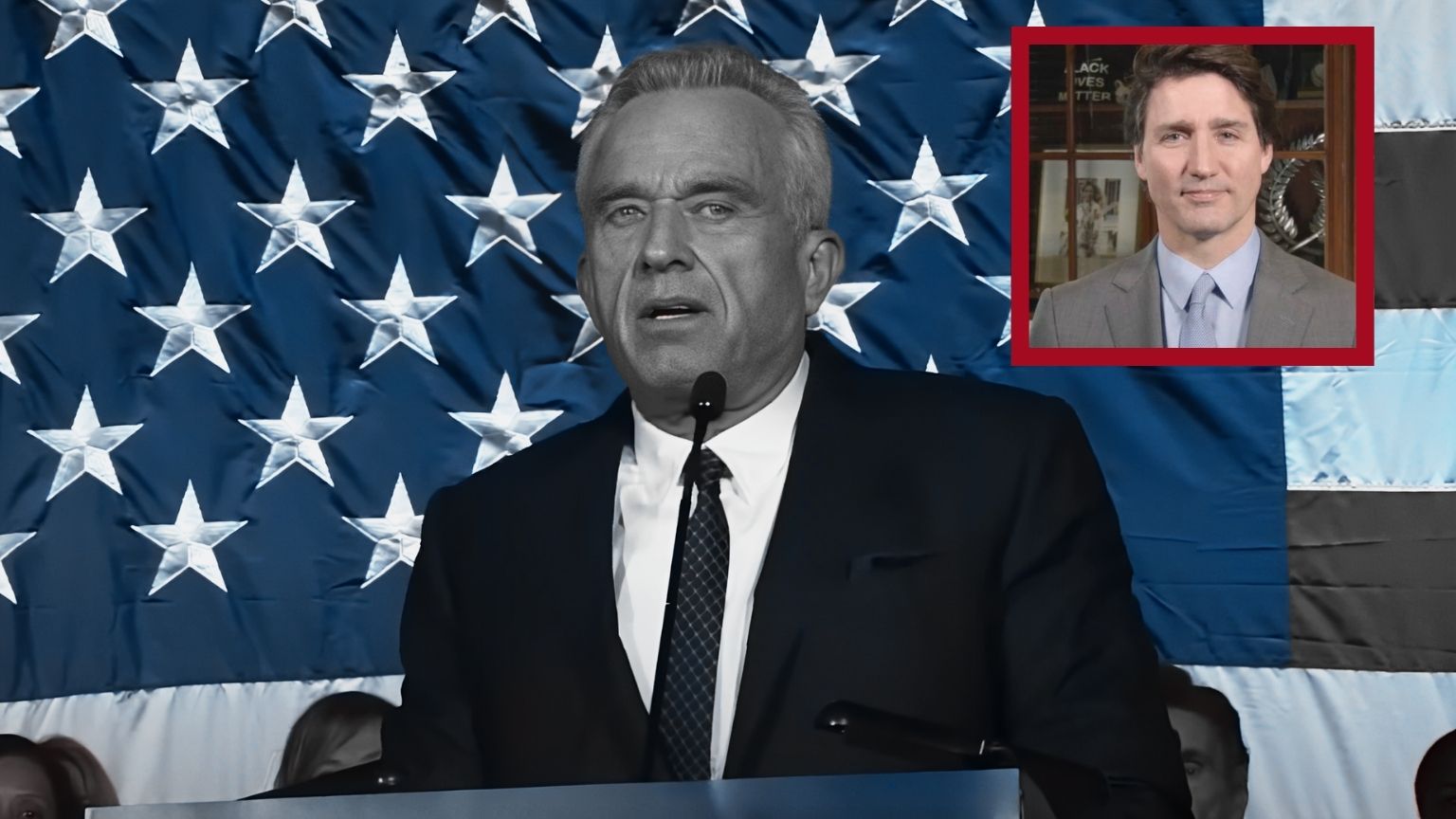Democratic presidential candidate Robert F Kennedy Jr. said that, if elected president, he would protect people from financial censorship.
“The ability to save and spend without political interference is a prerequisite for the exercise of meaningful dissent, and I will defend it accordingly,” Kennedy tweeted. “This is not a right- or left-wing issue. It is about protecting democracy from powerful established interests. The digitization of currency has given the government unprecedented powers to surveil and control economic life.”

He accused western governments of “financial censorship of political enemies.”
He noted how the Canadian government imposed financial sanctions against participants in the Freedom Convoy protests, and compared Prime Minister Justin Trudeau’s actions to Russia’s Vladmir Putin freezing the assets of opposition leader Alexei Navalny.
“It’s not outlandish to imagine that even here in America, your bank account could one day be frozen because of your politics, or comments you’ve made on social media,” Kennedy wrote.
“After all, in 2010, Paypal, Visa, and Mastercard suspended WikiLeaks, at the behest of the U.S. State Department. GoFundMe blocked U.S. accounts from sending funds to Canadian truckers and planned to donate the money to their own preferred charities instead, backing down only when faced with a lawsuit. PayPal modified their acceptable use policy to fine users $2,500 for spreading what they deemed to be misinformation, a change they rescinded under pressure. Nonetheless, thousands of customers are currently suing PayPal for the arbitrary seizure of their accounts.”
“These are the decisions of private companies, but often those private companies are acting out of fear of Congress or regulators, or directly at their bidding,” Kennedy said.
“Their decisions impinge directly on our rights.”
David Sacks, co-founder of PayPal, has publicly expressed his discontent with the current trajectory of the prominent payment processing organization.
Sacks, a distinguished entrepreneur and investor with a prosperous career in the technology sector, contends that PayPal has strayed from its original mission. Once a financial service dedicated to democratizing the domain monopolized by large banking institutions, it now purportedly excludes individuals, occasionally on the basis of assessments made by non-governmental organizations possessing a marked ideological and political inclination.













